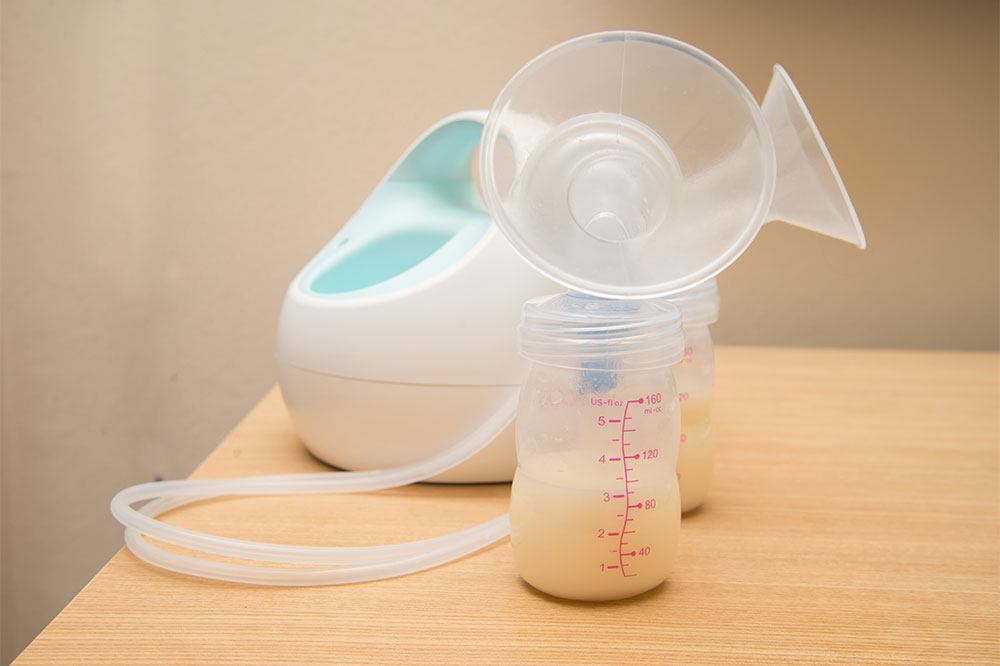Comprehensive Guide to Nurturing Your Child Through Every Growth Stage
This comprehensive guide explores essential nutritional practices for children at every growth stage, from infancy through toddlerhood. It emphasizes the importance of age-specific feeding methods, hygiene protocols, and fostering healthy eating habits to ensure optimal growth and development. Providing detailed tips on transitioning from milk to solids and promoting independence during mealtime, this article aims to equip parents with knowledge to nurture their children's health effectively throughout their early years.

Ensuring proper nutrition at each stage of your child's development is fundamental for promoting healthy growth, robust immune function, and overall well-being. From the earliest days as a newborn to the active toddler years, a child's dietary needs evolve significantly. Understanding these changes enables parents and caregivers to provide suitable, balanced, and safe foods tailored to each developmental phase.
Infancy: The Foundation of Nutritional Health
The first months of life are critical for establishing a nutritional foundation. During this period, newborns primarily depend on breast milk or formula, which provide essential nutrients, immune factors, and energy necessary for optimal growth. The World Health Organization recommends exclusive breastfeeding for the first six months, emphasizing that breast milk contains vital antibodies that protect infants from common infections.
Introducing formula milk is also appropriate when breastfeeding isn't possible or as a supplement. It's crucial to choose formulas formulated for infants and to prepare them following strict hygiene standards. Parents should ensure bottles, nipples, and other feeding equipment are sterilized regularly to prevent bacterial contamination, which can lead to infections. Maintaining proper hygiene practices reduces the risk of gastrointestinal issues and supports a strong immune system.
Introducing Solid Foods: Transitioning from Milk
At around six months, most babies are developmentally ready to begin exploring solid foods. This transition is vital in providing additional nutrients that may not be sufficient in breast milk or formula alone, such as iron and zinc. The introduction of solids should be gradual, beginning with easily digestible pureed foods like vegetables, fruits, and cereals.
Start with single-ingredient purees to monitor for allergies or adverse reactions. Common first foods include mashed bananas, cooked and pureed carrots, sweet potatoes, or rice cereal. As your baby becomes familiar with textures and shows interest, gradually increase the variety and texture of foods to encourage chewing and swallowing skills.
During this phase, caregivers should pay close attention to food safety, ensuring all foods are thoroughly cooked and mashed to prevent choking. It’s also important to avoid honey (which can cause infant botulism before age one), excessive salt or sugar, and processed foods that contain preservatives or artificial flavors.
Transitioning to Finger Foods and Promoting Independence
Once your baby develops teeth and improves hand-eye coordination, usually around 8-10 months, they can start exploring soft finger foods. Suitable options include small pieces of cooked vegetables, soft fruits, scrambled eggs, or small bread pieces. These foods encourage self-feeding, foster independence, and help develop fine motor skills.
Caregivers should continue to supervise mealtime to prevent choking hazards. Offering a variety of flavors and textures helps expand the child's palate and encourages healthy eating habits early on. Minimally seasoned foods are recommended, as babies' digestive systems are still sensitive to salt and spices.
Determinant Healthy Toddler Diets
By the time children reach their toddler years, they are capable of eating most family foods in appropriate portion sizes. This period is crucial for establishing lifelong eating habits. Providing balanced meals that include grains, proteins, fruits, vegetables, and dairy is essential for covering their nutritional requirements.
At this stage, it’s beneficial to serve a variety of foods and encourage self-feeding to promote independence and confidence at mealtimes. Offering age-appropriate portions of lean meats, whole grains, and fresh produce supports growth and development. It’s equally important to limit the intake of processed snacks and sugary beverages to prevent dental issues and maintain a healthy weight.
Monitoring for food allergies remains important in toddlerhood, especially when introducing new foods. Keep a record of reactions and consult healthcare providers if any adverse symptoms emerge. Consistency, patience, and positive mealtime experiences contribute significantly to cultivating healthy eating behaviors in children.
Additional Tips for Ensuring Safe and Optimal Nutrition
Proper hygiene practices are paramount at all stages of your child's feeding journey. This includes sterilizing bottles, utensils, and food preparation surfaces regularly to minimize infection risks. Wash hands thoroughly before preparing or offering food to your child.
Creating a nurturing environment for mealtimes encourages healthy attitudes toward food. Avoid pressuring children to eat and instead focus on offering nutritious options regularly. Recognize their cues of hunger and fullness, and respect their individual preferences and developmental pace.
Consulting with pediatricians or nutrition specialists can provide personalized guidance tailored to your child's specific needs, especially in cases of feeding difficulties, allergies, or growth concerns. Remember, patience and consistency are key to establishing healthy dietary habits that will benefit your child's lifelong health.




